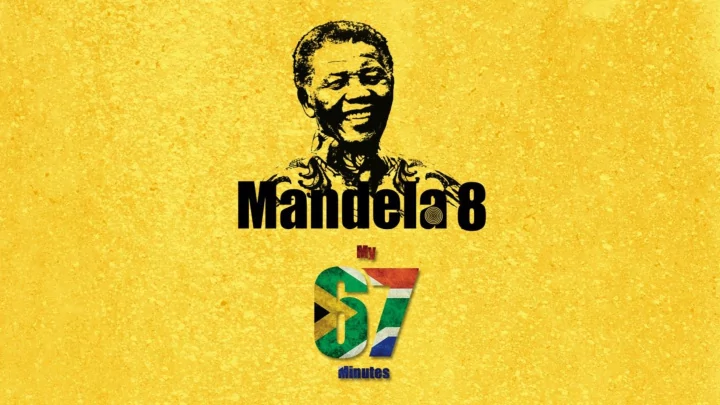

Nelson Mandela International Day 2018 marks 100 years since the birth of Nelson Mandela. The Centenary is an opportunity to reflect on his life and legacy, and to follow his call to “make of the world a better place.”
Nelson Mandela is seen as one of history's most inspirational figures. He spent 27 years in prison for trying to overthrow the pro-apartheid government and then became the first black President of South Africa. After he left prison, he worked to achieve human rights and a better future for everyone in South Africa.
Apartheid is an Afrikaans word meaning “ the state of being apart .” When Nelson Mandela was a young man, white and black people in South Africa were segregated from each other as part of the Apartheid system.
Nelson Mandela believed that everybody should be treated equally . Everyone should have access to the same healthcare, education, access to food and homes.
In 1944, Nelson Mandela joined the African National Congress, a group that wanted black South Africans to have the same human rights as whites. Speaking out against the government (and apartheid) at this time was dangerous. In 1956, 156 people, including Nelson Mandela, were arrested in a raid and accused of treason against South Africa. Crowd outside the Treason Trial in 1956 https://www.bbc.com/education/clips/zb93cdm
“The treason trial must occupy a special place in South African history. That grim pre-dawn raid, deliberately calculated to strike terror into hesitant minds and impress upon the entire nation the determination of the governing clique to stifle all opposition, made one hundred and fifty-six of us, belonging to all the races of our land, into a group of accused facing one of the most serious charges in any legal system” - Albert Lutuli (one of the 156 people accused in the treason trial)
After a trial lasting five years, those accused were finally set free in 1961. However, in 1962 Mandela was accused of sabotage and plotting to overthrow the government. He was arrested and in 1964 was sentenced to life in prison on Robben Island. While he was in prison photos of him were banned and it was even illegal to quote him in public.
During his time in prison, people in South Africa (and across the world) campaigned for his release.
In 1990, South Africa's new President FW de Klerk set Nelson Mandela free. He had spent 27 years in prison, 18 of those on Robben Island. Mandela called on all South Africans to work together in peace.
In 1991, Mandela became leader of the ANC. In the 1994 elections, all black people in South Africa were able to vote for the first time. The ANC won the election and in May 1994 Nelson Mandela became South Africa's first black president.
Nelson Mandela and Liverpool Liverpool opposed apartheid in South African and imposed sanctions on South African goods trade in early 1980s. There are well documented links between the Trade Union movement in Liverpool and Nelson Mandela’s work for equality. Both have addressed issues such as poor housing, employment, education and human rights. Liverpool gave Nelson Mandela the freedom of the city in 1994 and held a civic reception in his honour in 2014.
The Mandela 8 organisation is working with the Nelson Mandela Foundation and the Mandela family to create a memorial to Nelson Mandela in Princes Park, Liverpool 8. The memorial will act as a unique performance, conversation and contemplation space supporting community development and cohesion through a series of creative commissions and collaborations with widespread community and educational engagement and participation.
The monument will sit on the island in the lake in Princes Park to commemorate the time that Mandela spent on Robben Island.
An artist’s impression of what the memorial will look like The island will be called Mandela Island and the bridge will be called Freedom Bridge.
Nelson Mandela followed three rules throughout his life, which he did at great personal sacrifice: Free yourself Free others Serve every day He spent 67 years serving the community of South Africa.
Everyone has the ability and the responsibility to change the world for the better. No matter how small your action, Mandela Day is about changing the world for the better, just as Nelson Mandela did every day.
By devoting 67 minutes of their time – one minute for every year of Mandela’s public service – people can make a small gesture of solidarity with humanity and a step towards a global movement for good. What can you do to make the world a better place?
Ho How w wi will ll you you ma make ke a a di diff fference? erence?
Recommend
More recommend